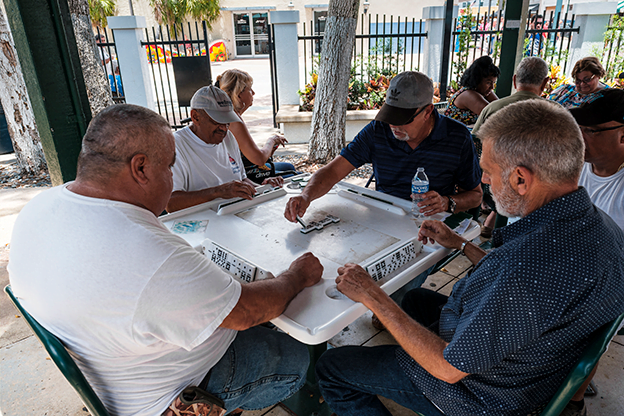Filter


Here’s Why People Don’t Save Enough
In the United States and Singapore – places that emphasize self-reliance – many older workers and retirees admit that, if given a do-over, they would have saved more money over the past 20 or 30 years. Regret was more common in the United States – 54 percent of older Americans had it versus 46 percent in Singapore, according to comparable surveys in each place. Perhaps the reason Singapore has less is because the government requires that employees set aside more than a third of their income in three government-run savings accounts for retirement, healthcare, and home purchases and other investments. On the other hand, Singapore doesn’t have Social Security or unemployment insurance, and private pensions are rare. Whatever the differences,…
June 10, 2021
Retirees Get a 401k Withdrawal Headache
Different people, different strategies. Myra Hindus and Jewell Jackson Myra Hindus of Boston, semi-retired at 68, had her financial adviser estimate the 401(k) withdrawals necessary to support her $4,500 monthly budget, which the adviser also prescribed. But Hindus isn’t fully at ease about her finances, despite the professional advice, a paid-off mortgage, and a good bit more savings than most people have. “It’s a bunch of guesswork,” said the former diversity administrator and consultant to major universities who hedges her bets by teaching college social work courses. What overwhelms her are the many unknowns that will determine whether her money lasts as long as she does. What if her adviser is wrong? Or what if she lives well into her…
April 24, 2018
COVID-19 Could Increase US Inequality
A growing number of Americans can’t pay their rent, and the queues forming outside food banks hint at human need on the scale of the Depression. For Americans who were already living paycheck to paycheck prior to the pandemic, the $1,200 relief checks the government has deposited into their bank accounts are too little and came too late. Few are being spared the financial fallout from the COVID-19 economic contraction. But economists predict the damage being done to working and middle class people will cause another surge in U.S. inequality, just as the previous recession did. The big unknown is whether this downturn, which is unfolding more violently than the previous one, will do even more damage to livelihoods and…
April 23, 2020
Oddly, the Educated Pay Higher Fees
It’s smart to invest retirement savings in mutual funds that charge very low fees for one simple reason: the worker keeps more of his money and hands over less to Wall Street. But in a study of people in their 50s and 60s who have retired or otherwise left federal employment, the people with the most education and the best scores on a standardized test were more likely to make what seems to be the wrong decision. Rather than keep their retirement funds in the government’s Thrift Savings Plan (TSP), which has extremely low fees, they transferred the money to much higher-fee IRAs operated by financial companies. The $500 billion TSP – the world’s largest defined contribution retirement plan –…
January 14, 2020
Array of Financial Products is Dizzying
Rather than put his money in a bank, my cousin, who’s in his mid-40s, makes loans in $25 increments on a peer-to-peer lending website. He decides on the amount of risk he’s willing to take on – and the riskier the borrowers he chooses, the more he earns on his “savings.” My cousin’s $25 investments illustrate how much our consumer finance market has evolved over several decades. We all embrace the convenience. Car loans are a more affordable way to buy a vehicle, Internet banking lets homebuyers get several mortgage quotes at once, and paying with cell phones is much easier than paying with cash or even credit cards. But all this innovation has a downside. One example is t…
May 26, 2016
Misconceptions About Social Security
It is the most important source of retirement income for most workers. Yet too many older Americans lack a basic understanding of certain aspects of Social Security benefits. In fairness, many people got some key questions right in a survey that quizzed them about the program’s rules and incentives. But a significant minority, and sometimes a majority, revealed a poor understanding of several major features of the program. As the researchers note, misunderstanding Social Security benefits could lead to poor financial decisions about retirement. They analyzed responses by more than 2,300 people – all between ages 50 and 70 – to a nationally representative survey administered online in 2008. The survey, which took about half an hour, started with basic…
July 16, 2015
Retirees Live on Less
Many recent U.S. retirees in a new survey receive less than two-thirds of what they earned during their working years, and they’ve made significant adjustments along the way. That finding for baby boomers who’ve retired in the past five years is contained in a larger national survey conducted by T. Rowe Price, the Baltimore mutual fund company. The full survey covered some 2,500 working and retired individuals, age 50 and over. All of them have at least some savings in a 401(k) account. The majority of the recent retirees reported their annual income is between $25,000 and $100,000. Social Security is the largest single source of that income, and smaller but equal shares come from defined benefit pensions and from retirement…
August 19, 2014
Single Retirees of Color Face Greatest Financial Hardship
Too many retirees of color are in the financially precarious state between outright poverty and barely getting by. Far larger shares of the nation’s Latino, Black, Asian, and Native American retirees are financially insecure than Whites, according to a new report confirming the now-familiar racial disparities that face both workers and retirees in this country. But what also stands out in this report, produced by The Gerontology Institute at the University of Massachusetts, Boston, is the gaping disparity between retired single people and married couples. First, consider older White Americans. They are in the best position financially. Yet about two in five single White retirees are financially insecure, while only one in five couples is. Single Latino retirees are muc…
August 17, 2023
Boomerang Kids Don’t Derail Their Parents
A popularized image of parents who struggle when adult children move back home is not shaping up as an accurate picture of the arrangements. Unemployment, divorce, college graduation – adult children in their 20s and 30s move back into a parent’s home for many reasons. And the parents can have all sorts of reactions, good and bad, to their boomeranging kids. Some parents get stressed out by young adults who return home because they need financial support. Others welcome having the kids back to pad the empty nest, help with household chores, or help pay the bills. The return home isn’t necessarily a one-time thing either. “As they attempt to gain financial independence, adult children may alternate between living on…
February 7, 2023
Good News on Health Insurance in Pandemic
To paraphrase a U.S. senator in 1977, the moral test of government is how it treats the sick, the poor, and its children. That rings especially true during an historic public health emergency like COVID. Congress came through with financial relief to blunt the pandemic’s impact, and the money that flowed through the economy provided more Americans with health insurance, while also reducing poverty. Several newly released U.S. Census reports “show how much vigorous policies can do to prevent poverty and preserve access to health care,” the Center on Budget and Policy Priorities concluded. The Uninsured. During the pandemic, the share of all adults lacking health insurance declined from 9.2% in 2019 to 8.6% in 2021, reversing the trend of…
September 27, 2022
401k Plans Evolve to Boost Workers’ Savings
Many employees in the private sector, when left to their own devices, either save very little in the company retirement savings plan or don’t even sign up for it. But a growing number of companies have revamped their 401(k)-style plans over the past two decades to strengthen the incentives for employees to save. While progress has been gradual and uneven, the companies are moving in the right direction. In a new study, researchers have compiled a unique nationally representative data set that tracks the changes employers have made to their 401(k)s and 403(b)s. The findings describe three important areas in which they are making progress: About 41 percent of the largest 4,200 U.S. employers in this study automatically enrolled workers…
September 9, 2021
Long-Term Care: Winging It
Americans have a very good chance of entering a long-term care facility. New research at the Center for Retirement Research, which sponsors this blog, finds that 44 percent of older men and 58 percent of older women will likely enter such a facility for at least a short stay. Only 29 percent of adults age 40 and over, however, are “extremely” or “very” confident they’ll have enough resources to pay for such care, or for other types of care they may need in old age, according to a survey by the Associated Press-NORC Center for Public Affairs Research, an independent survey organization based at the University of Chicago. The AP-NORC poll also revealed that people are poorly informed about how…















